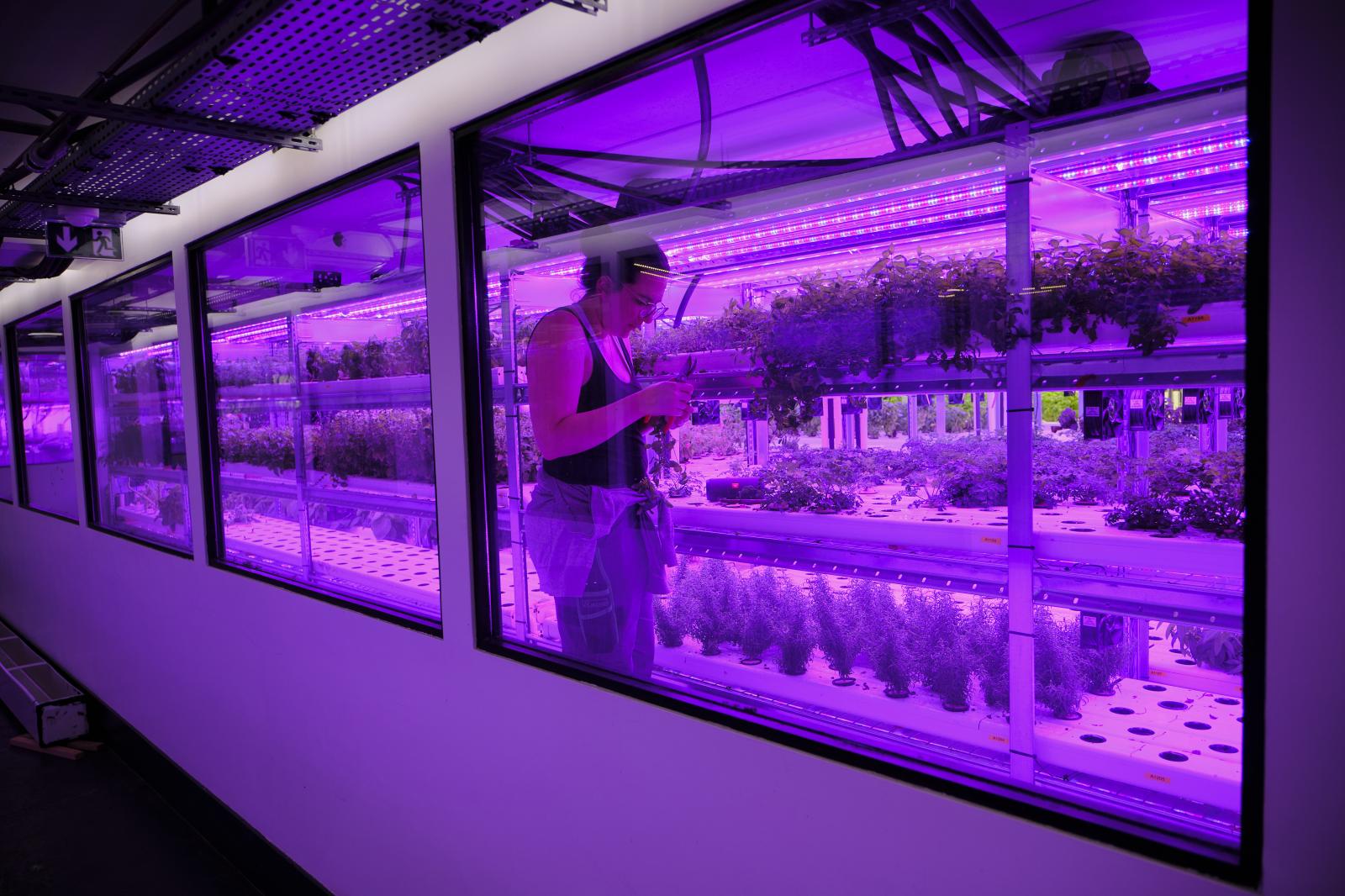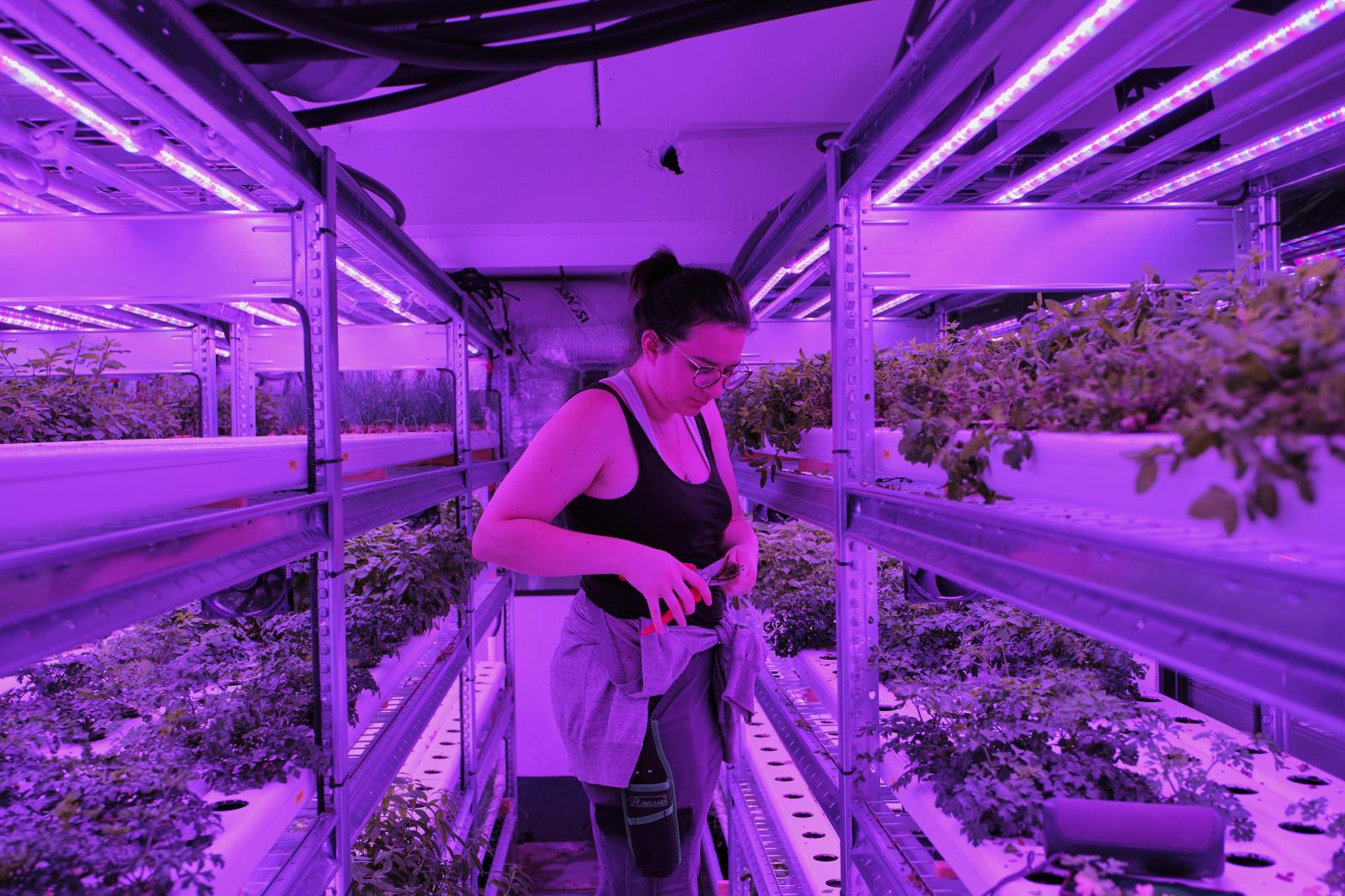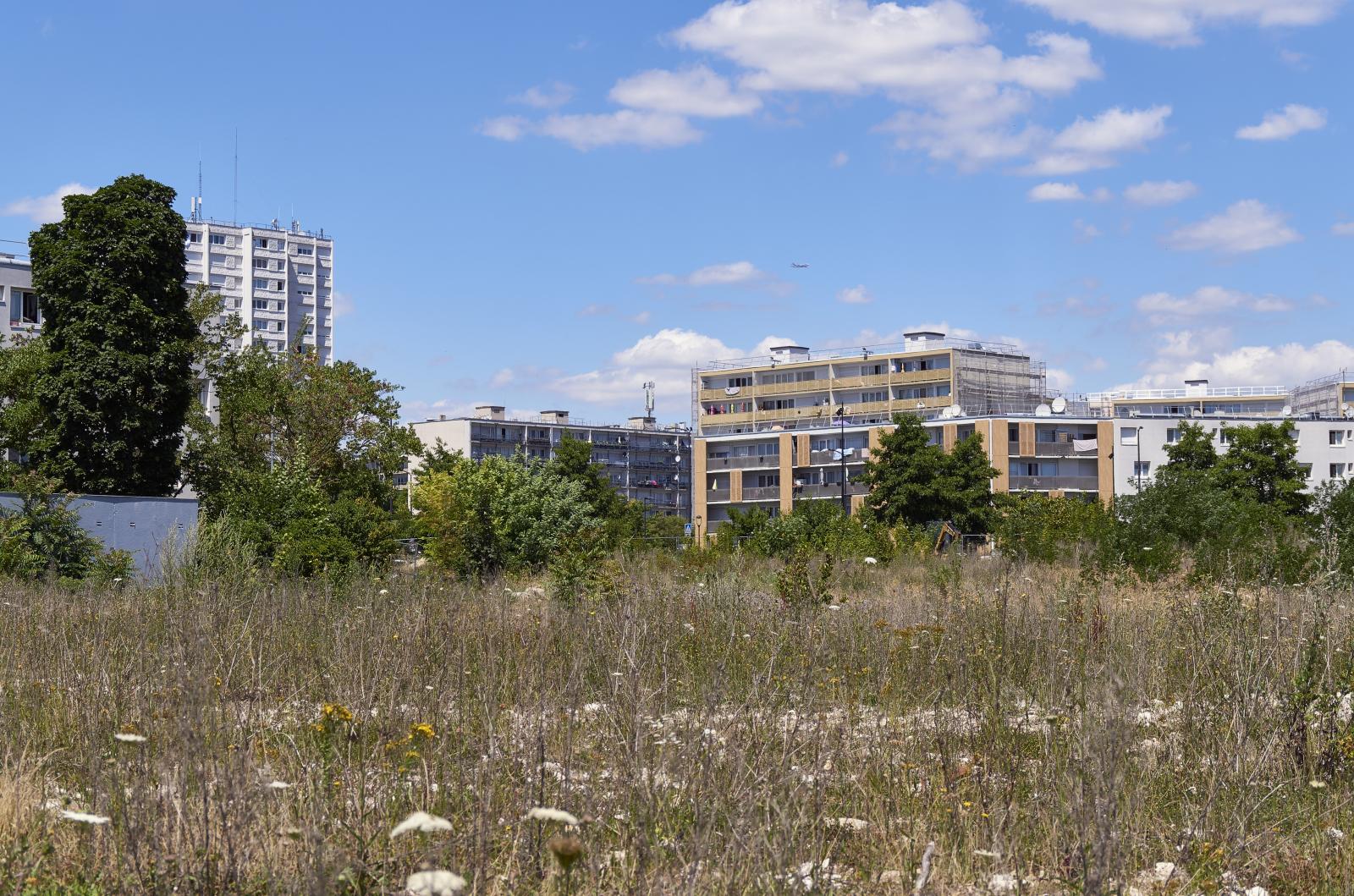Public Project
Urban Underground Farming In a Paris Suburb
Summary
By merging a technique called hydroponics and artificial LED lights, produce can be cultivated in spaces where no natural light is available. Hydroponics is a method where the roots of the plants are not grown in soil but in closed circuit pipes. Water combined with an organic nutrient solution is passed through these cylinders, reducing water spillage to a minimum and recycling up to 90% of it. Technically, the produce cannot be called organic because they are grown without soil, and soil is a prerequisite for the term.
The blazing, bright sun was intense so it takes a moment to adjust the eyes after entering the pink coloured basement. After restoring the senses, row upon row of plants, just planted, or ready to be harvested and anything in between meet the eye. Thai lemon basil, basil from Marseille, Korean green shiso, rosemary and 36 herb varieties fill only one room here.
The French agricultural start up Champerché has found a rather odd location for their second urban farm. In an inconspicuous area of a high rise social housing estate, a former parking area underneath a building now functions as an urban farm where, with the help of artificial light, vegetables and herbs are grown in abundance.
But that unlikeliness did not stop Antoine, Guillaume and Julien Fuyet from setting up shop there. The three brothers founded the company Champerché in 2017 and now employ 34 people in total and 19 people at the site in Sartrouville of whom 5 live in the building above the farm.
“Our first farm was a trial so we could tell investors that what we were doing was working. That we are able to manage a larger site with different products than the first. With subsidies from both the city of Sartrouville and the French government, that encourages young start ups, we were able to begin preparing the farm in 2020” says 23 year old Clement Delhome, press spokesman for the company who I meet at the farm.
“Here we have 1300 square meters of which 700 square meters are dedicated to growing produce, the equivalent of 24 hectares, or 24.000 square meters. With what we produce per bay floor and how we rotate, we are 216 times more productive than a traditional farmer growing the same produce per square meter. And we use the agricultural technique called bioponie, bioponie combines hydroponics and only organic ingredients and permaculture” Clement explains.
By merging a technique called hydroponics and artificial LED lights, produce can be cultivated in spaces where no natural light is available. Hydroponics is a method where the roots of the plants are not grown in soil but in closed circuit pipes. Water combined with an organic nutrient solution is passed through these cylinders, reducing water spillage to a minimum and recycling up to 90% of it. Technically, the produce cannot be called organic because they are grown without soil, and soil is a prerequisite for the term.
“We use two types of LED lights, ones with white light and another one with 3 different colours, because in fact this urban farm is a large laboratory, we are constantly trying new techniques. Now we work with nematodes, large worms, to try and reduce lice. We also let plants die to see how they interact with severe heat or humidity and lice attacks. And we introduced insects and look how the plant defends itself against these threats. After that we analyse our findings and change if needed.”
Not every space is accessible to document visually. The vegetable and fruit section is off limits as experiments and advanced agricultural techniques are currently being implemented on these crops. “ We do not want our competitors to see what we are up to.” smiles Delhome.
Among their clients, top restaurant chef Alain Ducasse is using the herbs and vegetables grown here. The French supermarkets Carrefour and Le Clercq now also sell the produce.
”Producing locally is very important to us, if not the most important. The distance that the produce travels must not exceed 20 kilometres, we are very strict on that. And there are no intermediaries, we supply the supermarkets directly from the farm. We would like to see that we set up he same structure all over France, or even all over Europe”, says Delhome
3,941





















